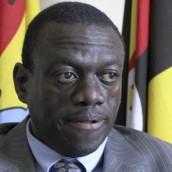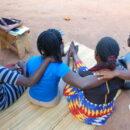Has the Ugandan “˜Revolution’ ended?

 Over the past month, Uganda has witnessed an unprecedented amount of political uprising and instability. This uprising in form of popular protests has operated under the idea of “˜walking to work.’ Ugandans were to make an economic statement to the government that has up to now failed to respond to rising food and fuel prices in the country.
Over the past month, Uganda has witnessed an unprecedented amount of political uprising and instability. This uprising in form of popular protests has operated under the idea of “˜walking to work.’ Ugandans were to make an economic statement to the government that has up to now failed to respond to rising food and fuel prices in the country.
Retired Colonel Dr. Kizza Besigye, the head of the opposition party Forum for Democratic Change (FDC) started off the protests from his house and met very hard esistance from the government forces and the police. His arrests (four in total) were to be the activator in many of subsequent demonstrations that took course all over the country from Mbale to Masaka to Jinja etc.
At the moment, it all seems to have calmed down. One might say that the absence of Besigye from the protest following his hospitalisation in Nairobi has slowed the momentum. Another perspective might be that the point the opposition had intended to make had been made.
However, we need to analyse this whole saga. In my opinion, which contradicts many analysts in Uganda, the situation has political rather than economic drivers. It must be be noted that all over the World there has been a rise in fuel and food prices. The same situation, or even worse, is apparent in the neighbouring East African States of Kenya and Tanzania. What the government has failed to do is to try to mitigate the frustrations that have arisen from these economic hardships. Luckily for the recently defeated opposition they have been provided with an immediate opportunity to make a comeback. By identifying with the millions of Ugandans facing hard times, they have acquired the platform they so badly needed.
Let me however deal with the core issues that I believe were crucial in strengthening this opposition campaign to near revolutionary proportions. First and foremost, the togetherness of the opposition parties. Prior to the February 2011 elections, there was a call for the opposition to form of a coalition to contest against the heavily funded and dominant ruling party, the National Resistance Movement. Unfortunately, the clash of ideas and the egos of the three opposition leaders Kizza Besigye, Olara Otunnu and Norbert Mao were to see this grand scheme disintegrate, leaving the FDC in a weak coalition with the minor opposition parties. With the protests, it has seemed like the opposition parties realised their mistake. They rallied together from the first day, getting the attention of many of the Ugandans through its unified appearance.
The rise of protests in Kampala and beyond can also be related to the force exerted on the opposition by the government. The best way of understanding how violence plays in the hands of Ugandans is to to compare the recent 2011 presidential elections with those in 2006. In 2006, Museveni exerted a great deal of pressure and military force on the opposition. Besigye was arrested, harassed, intimidated and even accused of rape, a case he was finally aquitted for. How this played in the minds of Ugandans was that Besigye became viewed as a victim being stopped from making any political head way. As a result, he got a lot of attention that manifested itself in form of votes. Fast forward to 2011, Museveni decides to use a financial strategy as a way of out manoeuvring the opposition leader. There were no cases of violence, intimidation and arrests in regards to Besigye and his group. The result, less attention on Besigye and an easy win for Museveni. The way Besigye and the other opposition candidates were arrested and mistreated during “˜walk to work’ pulled more angry Ugandans on to the streets. It is a known fact that some NRM supporters and sympathisers joined the anti Museveni protest due to the treatment of the opposition candidates.
These protests might have subsided, but we should not be too hasty in saying that they have ended. Food prices are still rising, fuel prices are soaring too by the day, and nobody (including the leading economist in the Ministry of Finance Keith Muhakanizi) can predict whether the rising level of inflation will take a downward trend in the near future. Besigye has vowed to continue protesting until he gets the results he wants.
How this can be halted or mitigated is simple. First and foremost the government of Uganda and President Museveni in particular should cut its arrogant and egocentric attitudes and listen to the people, lest the revolution eats them up. People are demanding lower prices of commodities, and of course it is true that the World is facing the same dilemma. But in the case of Uganda, a reduction in the taxes for fuel, basic household commodities like sugar, soap, cooking oil etc, and even a reduction in Pay As You Earn (PAYE) for salaried employees – from the current 30% to even 25% – would make people feel like the government is listening. But for as long as the government maintains its arrogant stand, stating (as the minister of Information did a month ago) that “˜nothing could be done’, the revolution will have no course to follow but the one it is currently taking.
Tony Otoa Jr is a Researcher and Political Analyst. Coordinator of the Civil Society Coalition on Oil in Uganda and also the Coordinator of the Access Initiative (TAI)-Africa




